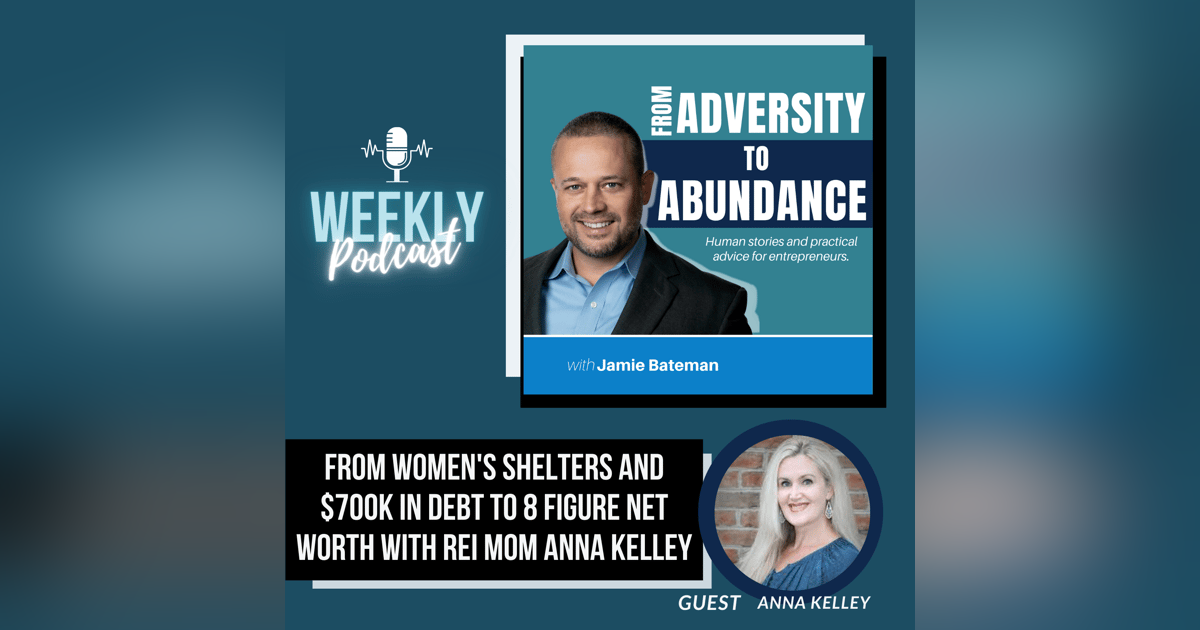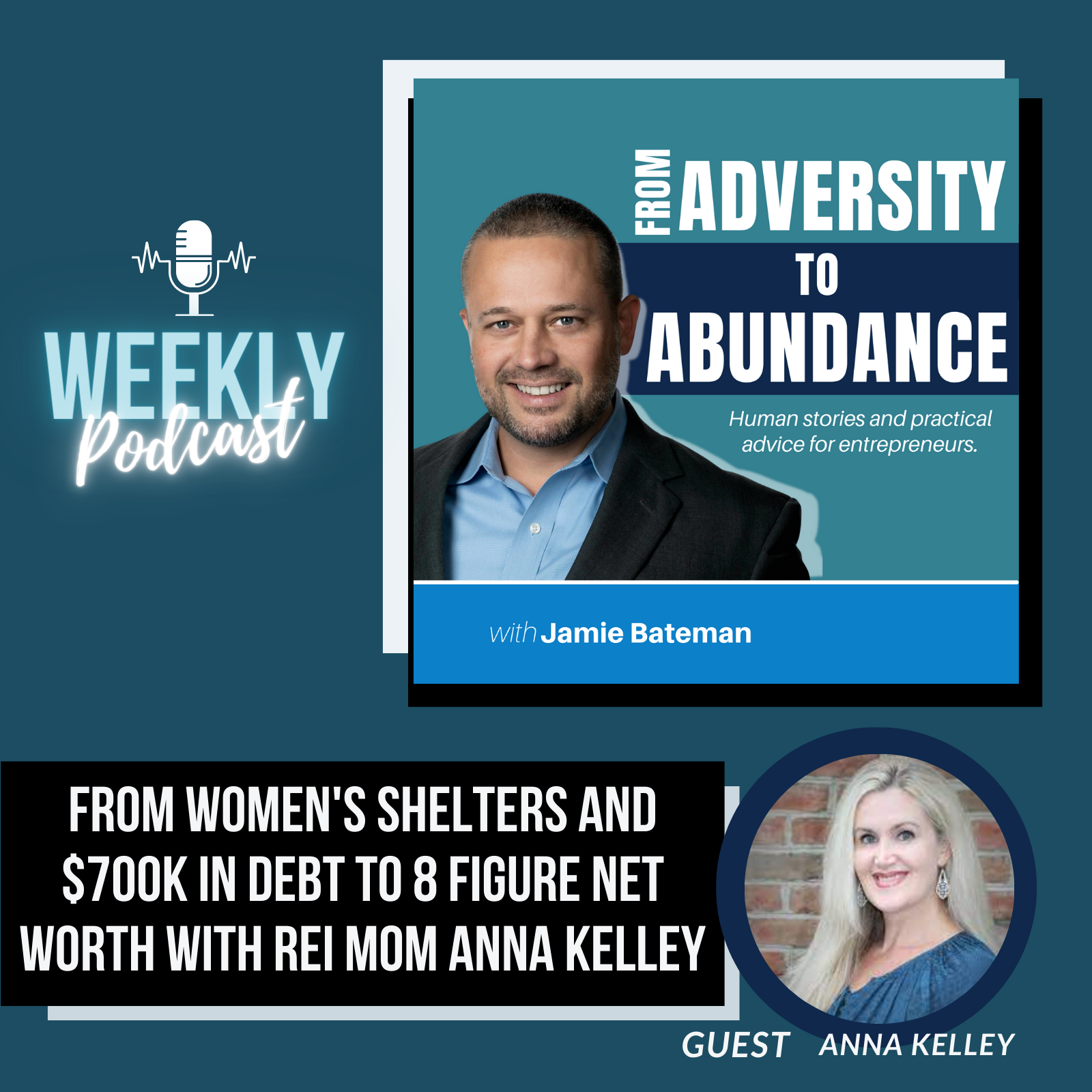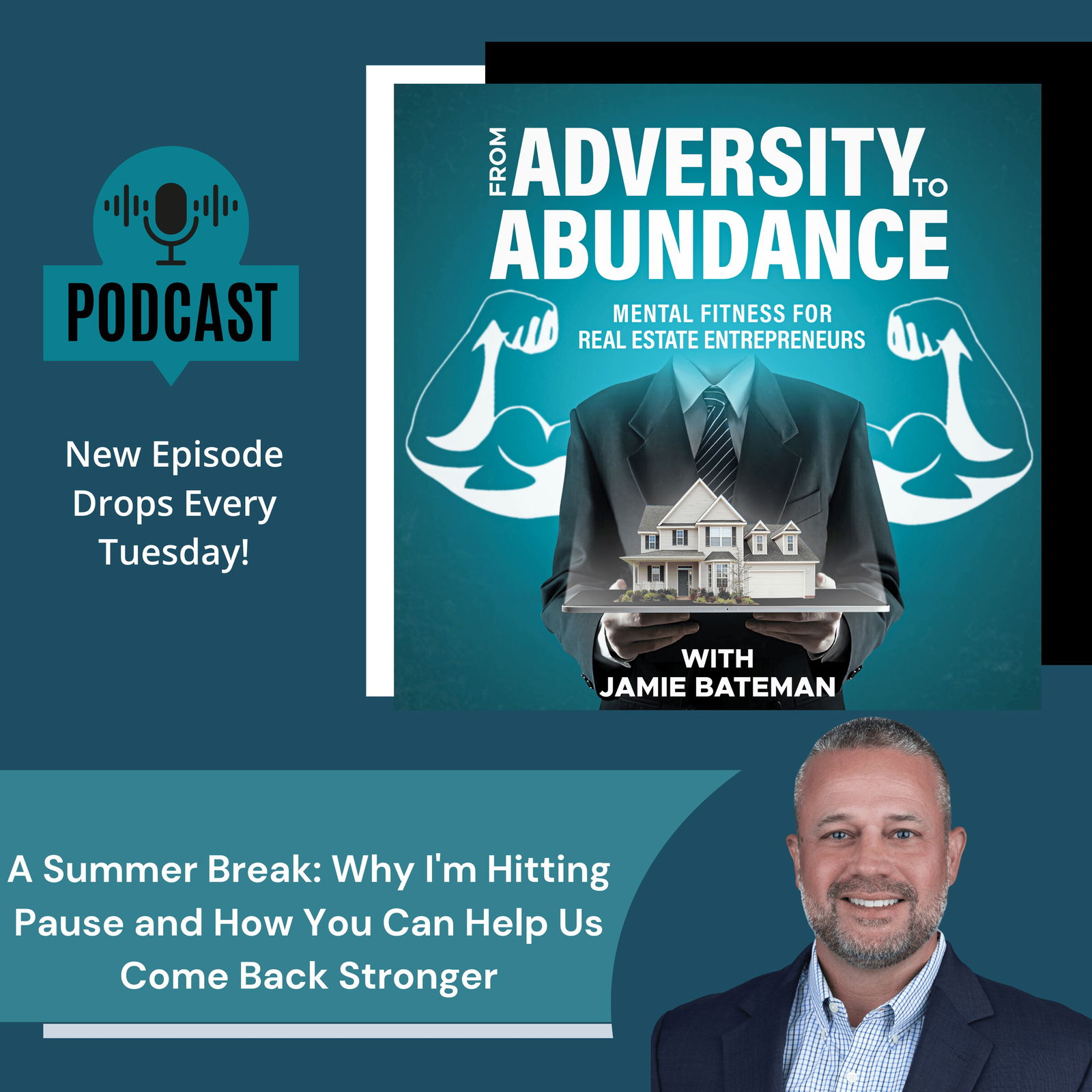From Women's Shelters and $700k in Debt to an 8 Figure Net Worth with REI Mom Anna Kelley


In 10 years, Anna Kelley went from $700,000 in debt to an 8-figure net worth real estate mogul. Being in tremendous debt wasn’t the first time she hit rock bottom. As a child, she grew up in households with abusive men and had to stay in women’s shelters with her mom. Her tough childhood only made her more determined to outwork all of her friends.
“I realized that if I wanted a different life than what I had as a child if I didn't want my children to be in an abusive situation or to spend evenings in a women's shelter as I had as a child if I wanted better for myself and my family, I had to be willing to do whatever it took to succeed and to get myself out of that situation.” (08:09)
Her grit eventually landed her high-profile careers at the Bank of America and AIG. Whereas most people would just call her lucky - she disagrees:
“People say, okay, you're lucky, right? They don't understand the backstory and all the adversity to get where you are. But I do believe that when you're prepared and preparation meets opportunity - that's what we call luck.”
Getting jobs where she works with ultra-high net worth individuals opened her eyes to what’s possible in life. So, how come she got into so much debt? And how did she climb out of it?
Anna Kelley is a multifamily syndicator. She invested in her first property in 1998 and exploded in the real estate space in the last 10 years.
Adversities Anna Kelley had to overcome:
-- Grew up in section 8 housing
-- Spent evenings in a women’s shelter as a child
-- Was $700,000 in business debt with no income source
Abundance Anna Kelley created:
-- Graduated early from college
-- Worked with ultra-high net worth individuals in the Bank Of America and AIG
-- 8-figure net worth, 250 units
Lessons from Anna Kelley’s adversities
-- You have control over how your life ends up, you have to be determined to do what others won’t do to get to where you want to get to
-- Timing matters. You can be the best at what you do, but if you start a business at the wrong time, you can shoot yourself in the foot.
Links
Principles for Dealing with the Changing World Order: Why Nations Succeed and Fail by Ray Dalio
The End of the World Is Just the Beginning: Mapping the Collapse of Globalization by Peter Zeihan
Life on Air: Memoirs of a Broadcaster by David Attenborough
Multi-Family Millions: How Anyone Can Reposition Apartments for Big Profits by David Lindahl
Connect with Anna Kelley:
WEBSITE: www.reimom.com and https://greaterpurposecapital.com/
LINKEDIN: https://www.linkedin.com/in/anna-kelley-reimom/
INSTAGRAM: https://www.instagram.com/AnnaKelleyinvesting/
Haven Financial:
https://www.myfinancialhaven.com/jamiebateman/
ATTENTION:
Unlock the secrets to a transformative life with “From Adversity to Abundance: Inspiring stories of Mental, Physical and Financial Transformation”. Buy your copy now and embark on a journey from challenges to triumphs!
AMAZON: https://www.amazon.com/dp/B0CGTWJY1D?ref_=pe_3052080_397514860
Connect with us
WEBSITE: https://www.adversity2abundance.com
Leave us a rating or review: https://www.adversity2abundance.com/reviews/new/ or here
Got comments, feedback or suggestions? We’d love to hear it! https://www.adversity2abundance.com/contact/
Follow From Adversity to Abundance Podcast
FACEBOOK: https://www.facebook.com/profile.php?id=100089126144055
INSTAGRAM: https://www.instagram.com/adversitytoabundancepodcast/
LINKEDIN: https://www.linkedin.com/company/89949391/admin/feed/posts/
YOUTUBE: https://www.youtube.com/@FromAdversity2AbundancePodcast
Connect with Jamie
BOOK: From Adversity to Abundance: Inspiring Stories of Mental, Physical, and Financial Transformation
LINKEDIN: https://www.linkedin.com/in/jamie-bateman-5359a811/
TWITTER: https://twitter.com/batemanjames





